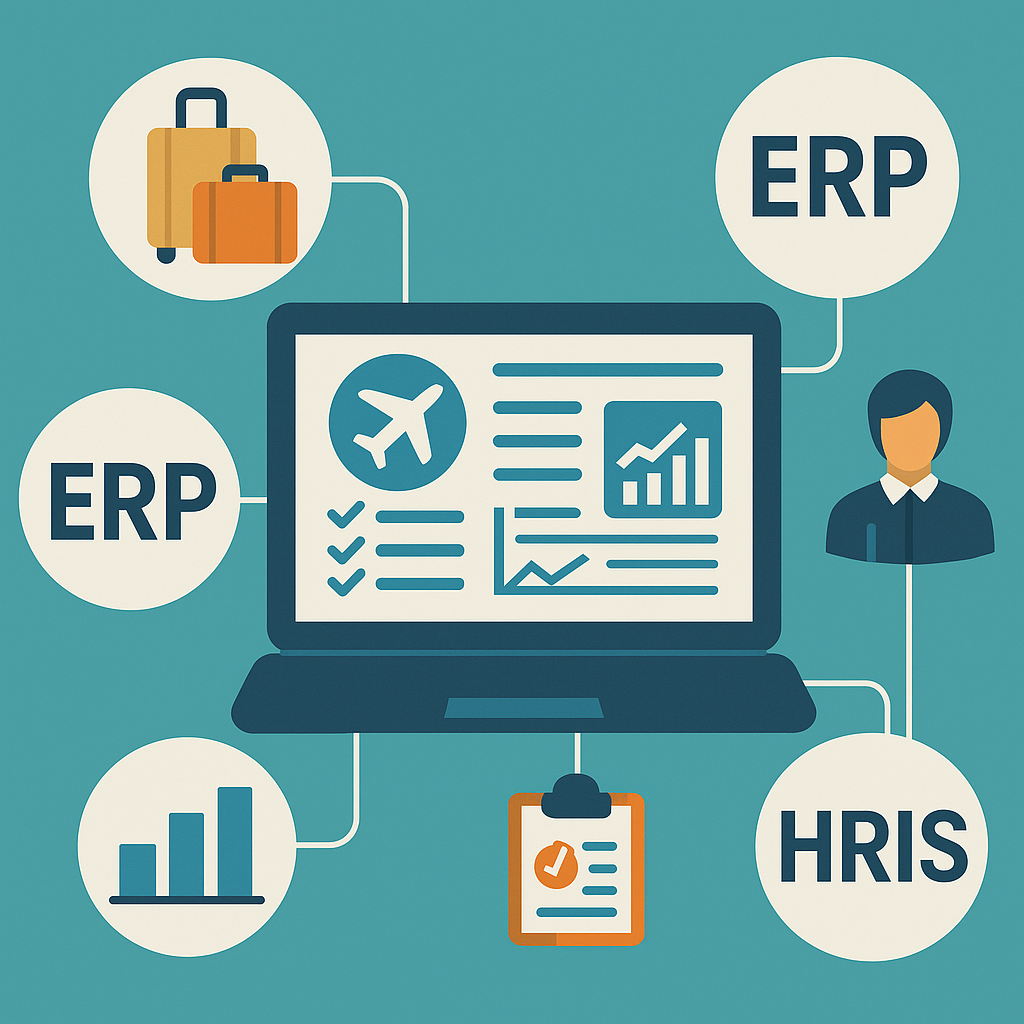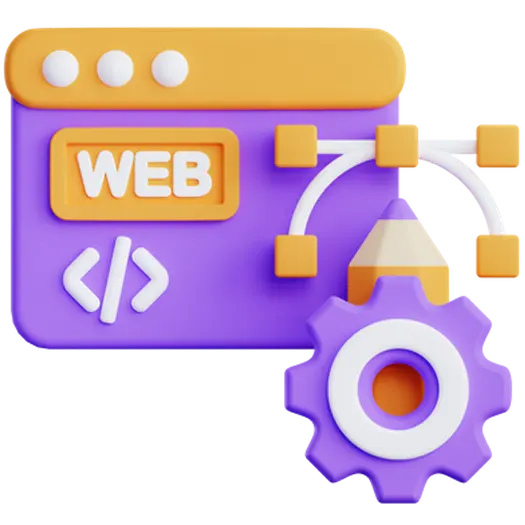Business travel is a vital activity for many companies, especially those operating on a national or global scale. However, unmanaged or non-integrated travel processes often lead to issues such as cost overruns, complex approval procedures, and difficulties in reporting. To address these challenges, many companies are now integrating their Travel Management System (TMS) with Enterprise Resource Planning (ERP) and Human Resources Information System (HRIS) platforms.
This article will explore in depth the benefits and best practices of integrating TMS with ERP and HRIS to create a business travel system that is efficient, structured, and sustainable.

What Is a Travel Management System (TMS)?
A Travel Management System (TMS) is a software platform designed to centrally plan, organize, monitor, and analyze business travel activities. Its core features typically include:
- Ticket and accommodation booking
- Itinerary management
- Automated approval workflows
- Integration with travel budgets and company policies
- Expense reporting and compliance tracking
By leveraging this technology, companies can replace time-consuming manual processes with a fast, integrated, and accurate system — improving both operational efficiency and cost control.
Why Is Integration Important?
Integrating the Travel Management System with other systems enables data to flow automatically across departments and functions. In other words, information is no longer stored in isolated “silos,” which often leads to:
- Data duplication
- Process delays
- Human errors
- Lack of transparency
With proper system integration, companies can manage business travel in real-time — automatically, accurately, and efficiently.
Benefits of Integrating Travel Management System with ERP
1. Improved Budget and Expense Management
When the TMS is integrated with ERP, it enables:
- Every business trip to be automatically recorded in the financial system
- Travel expenses to be directly compared with approved budgets
- Deeper analysis of spending per division or project
The result: better cost control, easier audits, and greater financial transparency.
2. Automated Payments and Reimbursements
By integrating with the ERP’s accounts payable module, the system can:
- Automatically generate invoices from travel transactions
- Allocate expenses to the appropriate accounts
- Process reimbursements directly to employee bank accounts after approval
3. Accurate Financial Reporting
Since all data is recorded in a structured manner, financial reports can:
- Incorporate travel costs into the profit & loss statement in real time
- Provide detailed breakdowns by department, project, or location
- Serve as a reliable basis for next year’s budgeting decisions
Benefits of Integrating Travel Management System with HRIS
1. Automatically Connected Employee Data
A Travel Management System integrated with HRIS will:
- Automatically access up-to-date employee information
- Align travel entitlements with job levels
- Set approval workflows based on the organizational structure
- Eliminate the need for manually entering names, positions, or supervisors when submitting travel requests
2. Automated Approvals and Workflow
With a clear hierarchy from the HRIS, the Travel Management System can:
- Configure approval flows based on job levels or departments
- Assign backup approvers if a manager is on leave or unavailable
- Enable fast and transparent approvals via mobile app or email
3. Performance & Productivity Monitoring
Integration allows the HR team to:
- Track each employee’s travel frequency
- Link travel data to work output and performance
- Create data-driven travel policies based on productivity and actual needs
Cross-System Integration
TMS in 2025 is no longer a standalone system. Instead, it is:
- Integrated with HR software for tracking employee activity
- Connected to financial modules for automated budgeting and reimbursements
- Linked to global security systems for real-time risk monitoring
The result is a truly efficient and comprehensive end-to-end solution.
Must-Have Integration Features
Here are the essential features for optimal integration between Travel Management System and ERP & HRIS systems:
| Feature | Function |
|---|---|
| Open API | Enables data communication between systems |
| Single Sign-On (SSO) | Unified login for all integrated systems |
| Auto Data Sync | Automatically syncs employee data and organizational structure |
| Automated Approval Matrix | Automatic approvals based on HRIS structure |
| Automatic Cost Allocation | Real-time cost categorization based on ERP accounts |
| Unified Dashboard | Displays TMS + HR + Finance data in a single interface |
Case Study: A Consulting Firm with 500+ Employees
A management consulting firm with high activity across Southeast Asia integrated their Travel Management System with SAP ERP and Oracle HRIS. Within just 9 months, they achieved:
- Travel approval times reduced from 3 days to just 1 day
- Data entry errors decreased by 80%
- Travel costs lowered by 18% due to improved analytics and visibility
- Reimbursements processed automatically in under 48 hours
Challenges and How to Overcome Them
Challenges:
- Inconsistent data formats across systems
- Lack of technical support from legacy vendors
- Internal resistance to system changes
Solutions:
- Use middleware or integration platforms like Zapier, Workato, or custom APIs
- Involve IT and finance teams early in the process
- Conduct onboarding training for staff who will use the system
The Future of TMS Integration
With the advancement of technologies like AI and Machine Learning, TMS integration with other systems will become increasingly automated and intelligent. Upcoming trends include:
- Automatic detection of policy violations
- Travel budget prediction based on company calendar and events
- Integration with loyalty and rewards programs
- Trip optimization based on employee performance and cost-effectiveness
Conclusion
Integrating TMS with ERP and HRIS is not just about technology — it’s a business strategy. A connected system enables companies to create a travel process that is efficient, cost-effective, and fully controlled. This becomes a vital foundation for driving growth and professionalism in the era of digital mobility.
Ready to explore the potential of an advanced TMS for your company? Contact us at www.doterb.com for a free demo and expert consultation with our team.
